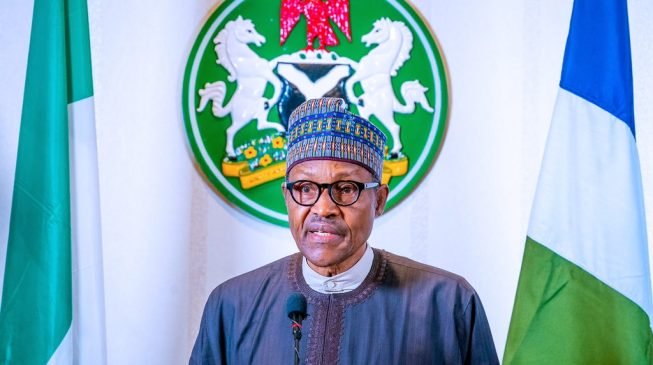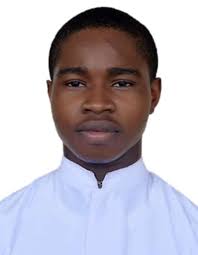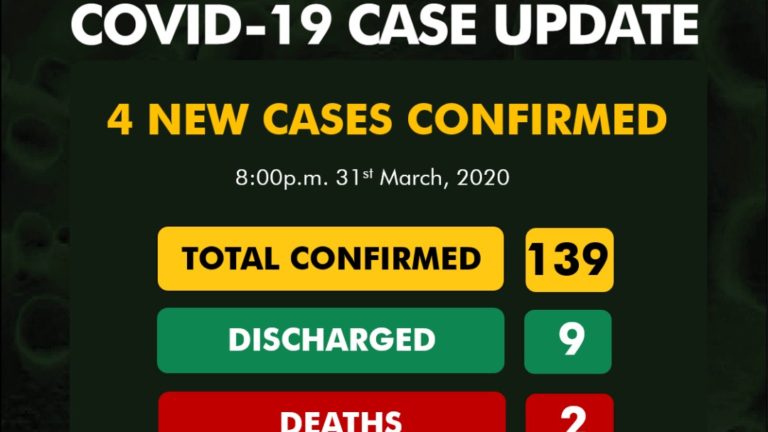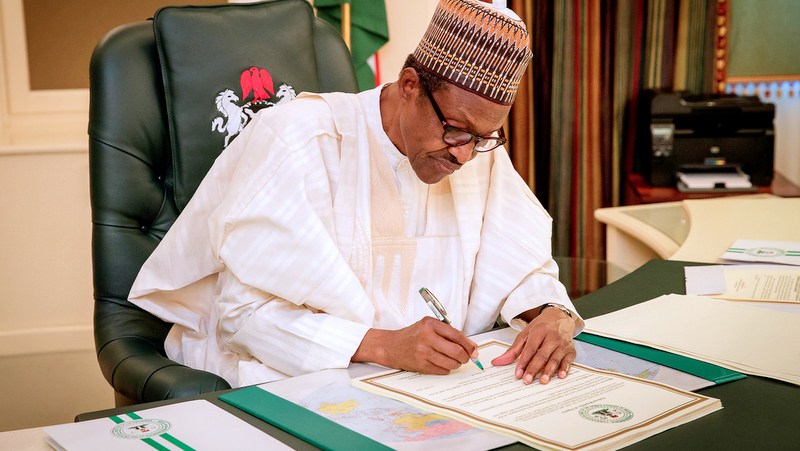Historic perspective on the pardon of Alli and Enahoro

By Eric Teniola
The presidential pardon granted by President Muhammadu Buhari, GCFR, to former Nationalist and Minister, Chief Anthony Eromosele Enahoro (1923-2010), and also to Professor Ambrose Folorunsho Alli (1929-1989), former Governor of the defunct Bendel state and endorsed by the National Council of State is most welcome. I hope the pardon will be extended to others including Major General Tajudeen Olanrewaju, former Minister of Transportation, and others whose cases are being reviewed in the Presidency.
Let us discuss that of Professor Ambrose Alli first.
On December 31, 1983, President Shehu Shagari’s elected government was dethroned by a military coup headed by Major General Muhammadu Buhari. Also dethroned and detained were elected governors that served between 1979 and 1983. They are Dr. Victor Olunloyo and Chief Bola Ige (Oyo), Alhaji Lateef Jakande (Lagos), Chief Bisi Onabanjo (Ogun), Chief Michael Ajasin,(Ondo), Professor Ambrose Alli and Chief Samuel Ogbemudia (Bendel), Chief Cornelius Adebayo, and Chief David Attah(Kwara), Dr. Clement Isong and Chief Donald Etiebet (Cross Rivers), Alhaji Abdulkadir Balarabe Musa, Alhaji Abba Musa Rimi and Alhaji Lawai Keita (Kaduna), Alhaji Garuba Nadama (Sokoto), Alhaji Abubakar Bardeh and Wilberforce Juta (Gongola), Mohammed Guni and Asha Jarma(Borno), Chief Jim Nwobodo and Chief C.C. Onoh (Anambra), Chief Sam Mbakwe (Imo) and Chief Solomon Lar (Plateau), Alhaji Abubakar Rimi and Alhaji Barkin Zuwo (Kano), Chief Melford Okilo(Rivers), Alhaji Abubakar Tatari Ali (Bauchi), Mr. Aper Aku (Benue), Alhaji Muhammed Anwar Ibrahim (Niger),
In overthrowing President Shagari’s government, Brigadier Sani Abacha, GCFR, told the nation in a broadcast on December 31st, 1983 that “You are living witnesses to the great economic predicament and uncertainty, which an inept and corrupt leadership has imposed on our beloved nation for the past four years. I am referring to the harsh, intolerable conditions under which we are now living. Our economy has been hopelessly mismanaged. We have become a debtor and beggar nation. There is the inadequacy of food at reasonable prices for our people who are now fed up with endless announcements of importation of foodstuffs. Health services are in shambles as our hospitals are reduced to mere consulting clinics without drugs, water, and equipment. Our educational system is deteriorating at an alarming rate. Unemployment figures including the undergraduates have reached embarrassing and unacceptable proportions. In some states, workers are being owed salary arrears of eight to twelve months and in others, there are threats of salary cuts. Yet our leaders revel in squandermania, corruption, and indiscipline, and continue to proliferate public appointments in complete disregard of our stark economic realities. After due consultation over these deplorable conditions, I and my colleagues in the armed forces have in the discharge of our national role as a promoter and protector of national interest decided to effect a change in the leadership of the government of the Federal Republic of Nigeria and form a Federal Military Government. This task has just been completed.”

The late Chief Anthony Enahoro
Shortly after, the Supreme Military Council was constituted and the following were appointed as members. Major General Muhammadu Buhari, Head of State and Commander-in-Chief of The Nigerian Armed Forces from Kaduna state, Brigadier Babatunde Abdulbaki Idiagbon, Chief of Staff, Supreme Headquarters, ((Kwara State), Major-General Domkat Bali, Defence Secretary, (Plateau state), Major General Ibrahim Babangida, Chief of Army Staff, (Niger state), Commodore August Aikhomu, Chief of Naval Staff, (Bendel state), Air Vice-Marshal Ibrahim Mahmud Alfa, Chief of Air Staff, (Gongola state), Major-General Mamman Jiya Vatsa, Minister of Federal Capital Territory, (Niger state), Brigadier Joseph Olayeni Oni, GOC, 1st Mechanised Infantry Division-Kaduna, (from Lagos state), Brigadier Mohammed Sani Abacha, GOC 2ND Mechanised Division—Ibadan, (from Kano state), Colonel Salihu Ibrahim, GOC, 3RD Armoured Division- Jos, (Kwara state), Brigadier Yohanna Yerima Kure, GOC, 82ND Division—Enugu, (Kaduna state), Brigadier Mohammed Mangoro, Minister of Internal Affairs, (Sokoto state), Brigadier Muhammadu Gado Nasko, Commander-Nigerian Army Corps of Artillery, (Niger state), Brigadier Paul Omu, Army (from Bendel state), Navy Captain Ebitu Ukiwe, Flag Officer Commanding, Western Naval Command, (from Imo state) and Air Commodore Larry Koinyan, Air Force, (from Rivers state).
On April 5, 1984, General Buhari promulgated decree Number 3 and decree Number 8.
Decree No. 8 states that THE FEDERAL MILITARY GOVERNMENT hereby decrees as follows: 1. Immediately after subsection (1) of section 1 of the Recovery of Public Property (Special Military Tribunals) Decree 1984, there shall be inserted the following new subsection (1A), that is — “(1A) Any public officer who— (a) has engaged in corrupt practices or has corruptly enriched himself or any other person; or (b) has by virtue of abuse of his office contributed to the economic adversity of the Federal Republic of Nigeria, or has in any way been in breach of the Code of Conduct, shall be guilty of an offense under this Decree and upon conviction shall, apart from any other penalty prescribed by or pursuant to any other provision of this Decree, forfeit the assets, whether movable or immovable property, connected with the commission of the offense, to the Federal Military Government.” 2. This Decree may be cited as the Recovery of Public Property (Special Military Tribunals) (Amendment) Decree 1984 and shall be deemed to have come into force on 31st December 1983.
The Decree 3 says “ WHEREAS by section 5 (1) of the Recovery of Public Property (Special Military Tribunal) Decree 1984, the Head of the Federal Military Government is empowered, by instrument under his hand, to constitute special military tribunals for the purpose of the trial of certain public officers:
AND WHEREAS by section 5 (2) of the Decree it is provided that each tribunal appointed under the Decree shall consist of — (a) a Chairman who shall be an officer in the Armed Forces not below the rank of Colonel or its equivalent; (b) three other officers of the Armed Forces not below the rank of Lieutenant-Colonel or its equivalent (c) a serving or retired judge of a High Court or any court of like jurisdiction who shall, amongst other things, assist the tribunal in determining questions of law.

The late Professor Ambrose Alli
General Buhari later constituted five military tribunals to try the detained governors. The Lagos tribunal (Lagos state) was headed by Brigadier Paul U. Omu with Brigadier M.M. Nassarawa, Navy Captain J.N. Kanu, Lt-Colonel Yinka Martins, and Mr. Justice T.A. Oyeyipo as Members. The Ibadan zone (Oyo, Ogun, Ondo, Bendel, and Kwara states) was headed by Brigadier C.B. Ndiomu. Other members are Commodore I.J. Ogohi, Lt-Colonel Y. Madaki, Wing-Commander C.C. Ohadumere, and Mr. Justice S.U. Minjibir. The Kaduna Zone (Kaduna, Kano, Niger, and Sokoto states and the Federal Capital Territory) had Navy Captain M.A. Elegbede as the Chairman while the members were Lt-Colonel I.D. Gumel, Lt-Colonel M. Maina, Wing-Commander J.P. Obakpolor, and Mr. Justice P.P. Nwokedi.
It was the Kaduna zone headed by Navy Captain Muftau Adegoke Babatunde Elegbede (1939-1994) that jailed the former Kano state governor, Alhaji Sabo Bakin Zuwo (1934-1989). He was tried and sentenced to 23years in prison on charges of corruption by the Kaduna Zone. Alhaji Bakin Zuwo was released from jail in January 1988. He died on 16 February 1989 in a German hospital, where he had been taken after being in a fall. He was buried in Kano, his beloved city, in whose politics he had featured prominently for several decades. Alhaji Sabo Bakin Zuwo was survived by three wives and 26 children.
With the recent pardon by President Muhammadu Buhari, the expectation now is that the properties will finally be returned to the Enahoro family
Sadly, Captain Elegbede was assassinated by gunmen on 19 June 1994 along the Gbagada/Oworonsoki expressway in Lagos.
It was the Ibadan Zone that jailed Professor Ambrose Folorunsho Alli. The Zone was headed by Major General Charles Bebeye Ndiomu (1934-2002) from Odoni in Sagbama Local Government Area of Bayelsa State. Professor Alli from Ekpoma in the then Bendel state was educated at the Immaculate Conception College in Benin City before going to St. Patrick’s College, Asaba, and to the School of Agriculture in Ibadan. He trained as a medical laboratory technologist at the University College, Medical Laboratory, Ibadan, from 1950-1953, and studied Medicine at the University College of Ibadan from 1953 to 1960. Alli did further Medical studies in Britain after that and worked in hospitals there and in Zimbabwe (1960-1962). Professor Alli returned to Nigeria in 1966 to begin a distinguished academic career. He was a Professor of Morbid Anatomy at Ahmadu Bello University, Zaria from 1969 to 1971, and at the University of Ibadan from 1971 to 1974. From 1974 to 1979, he was Head of the Department of Pathology, University of Benin. He was tried on corruption charges and sentenced to a total of 66 years’ imprisonment. The sentence was later reviewed and reduced to seven years. His health deteriorated while in jail. Alli was released on 13 February 1988 only after the payment of N983, 000.00 raised by his friends into the government chest.
He died on 22 September 1989 (his 60th Birthday) at the Lagos State Teaching Hospital. On page 17 of his book titled “MY DIALOGUE WITH NIGERIA”, the former Chief of Army Staff, General Julius Alani Ipoola Akinrinade wrote that “some people have pointed out seeming contradictions in the trial of former public officers. For instance, they say that while some former governors were jailed for accepting money from contractors, the contractors themselves were not jailed and while Abba Musa Rimi and Wilberforce Juta were jailed for giving money to legislators, the legislators themselves were not jailed for taking the money. I believe that in both cases, the governors were wrong to have taken the money and spent public funds in a way not permitted by law. People are confused because the government has not bothered to explain and they are in fact, edgy because they regard the judgments as contradictory. The government has to be open and, at least, brief the people on why it takes certain actions. I don’t think this government has someone to do public relations for it properly”.
It was Governor Lucky Igbinedion of Edo state who renamed Bendel State University to Ambrose Alli University, Ekpoma. The governor was assisted following a motion moved by Honourable Pascal Ugbomeh (Etsako Constituency 1) of the Edo state House of Assembly while the right honorable Thomas Okosun presided as Speaker in the then Edo House of Assembly, in 1999. It was during that period that the Ogbe Stadium in Benin was renamed Samuel Ogbemudia Stadium following a motion passed by the Edo House of Assembly. To his credit, the University has produced notable Nigerians like Tony Elumelu, Pastor Chris Oyakhilome, Don Jazzy, Peter Godsday Orubebe, Alibaba Akpobome, Omawunmi, Benedict Ayade, Samuel Oboh, Francis Odega, Buchi, Dickson Tarkighir, Aisha Buhari, Festus Keyamo, Ovire Peggy, Alex Usifo, Victor Ehikhamenor, Aliyu Doma, Ausbeth Ajagu, Beatrice Jedy-Agba, etc.
On February 3, 1976, that is ten days before he was assassinated, General Murtala Mohammed (1938-1976), GCFR, made a broadcast to the nation in which he declared on that day, “The Assets Investigation Panel—This panel has examined the assets of all the former Military Governors, the former Administrator, East-Central state and some former Federal Commissioners. The details of the decisions on each of the former public officers so investigated will be announced immediately. Suffice it to say that all the ex-Military Governors and the former Administrator of East-Central State with the exception of two were found to have grossly abused their office and guilty of several irregular practices. Clearly this investigation has revealed that they had betrayed the trust and confidence reposed in them by the nation. Those of them who wore uniforms betrayed the ethics of their profession and they are a disgrace to those professions. They should be ashamed of themselves. They are therefore all dismissed with ignominy and with immediate effect. This order does not affect the two ex-Military Governors whose investigation did not reveal mal-practices and abuse of office. Where the public officers have not been able to explain satisfactorily their earnings and assets, these have been confiscated. The total value of assets confiscated is over 10million naira. In addition, the Ministry of Justice and the Police will look into the criminal aspects of their activities with a view to taking necessary legal action, if need be. In disposing of the findings of the Assets Investigation Panel, our main concern has been to lay down guidelines and new standards for the conduct of public officers in this country. We have not tried to victimize anybody and each officer was given the opportunity to explain to the panel of professionals and experts, the way and manner he acquired his assets. We have also taken note that being Nigerians they were entitled to all facilities that were available to Nigerians in the ordinary course of business, subject, of course, to the ethics of the offices they held. I believe justice has been done.”
It was in the same broadcast that General Murtala Mohammed created seven additional states thereby increasing the states in Nigeria from 12 to 19. The panel he was referring to was headed by Justice Samuel Olu Okunribido from Isonyin near Ijebu-Ode in Ogun state. Justice Okunribido started his education at the Emmabyek School, Isonyin, 1932, Ijebu-Odu Grammar School, 1934-1937, Oduduwa College, Ile-Ife, 1937, Igbobi College, Lagos, 1938-1942, King’s College, University of London, England, 1952-1955, London School of Economics, University of London, 1958-1959, University of Cambridge, England, 1959-1960 in private legal practice, 1956, pupil crown counsel, Legal Department, Lagos, 1956, senior legal officer, Office of the Legal Counsel, United Nations Office Legal of Legal Affairs, 1966—1970, also legal adviser, United Nations Conference on Trade and Development, 1969-1970, Director of Public Persecutions of the Federation, 1970-1974, appointed Judge, Federal Revenue Court, 1974.
Justice Okunribido’s panel submitted its 298-page report to General Murtala Mohammed five days before the broadcast. The government white paper on the report was not released until after the death of General Murtala Mohammed. In the report, two Ministers, Alhaji Shehu Shagari and Shettima Ali Monguno were cleared of corrupt practices. Also cleared were two governors—Brigadier General Christopher Oluwole Rotimi (85) of Western state and Brigadier Mobolaji Olufunsho Johnson (1936-2019) of Lagos state. All the ten other governors and the Ministers were found guilty of corruption and some of their properties were confiscated. In addition, another committee was set up by the Federal Government under the headship of Chief A.G.K. Onikoyi to probe the farms of two former Governors—Brigadier Samuel Ogbemudia (Bendel State) and Alhaji Audu Bako (Kano State). Some of the former Ministers and former governors protested the government’s actions at that time. They claimed that the panel was unfair to them since they were not given the right to give evidence. They alleged that the panel based its judgments on innuendos and rumors peddled by their enemies bent on destroying them. A few weeks before stepping aside, General Ibrahim Babangida in 1993 promulgated the Forfeiture of Assets Decree No. 54 of 1993. The Decree returned the properties seized by the Justice Okunribido’s panel of 1976 to some former governors and former Ministers.
Mr. Richard Akinola, a notable Journalist has since published the names of the properties and their owners while Mr. Biodun Olufowobi alias Pabiekun, a notable lawyer, and Mr. Tunde Kamilu Kasali, a lawyer and former Executive Secretary of the Revenue Mobilisation Allocation and Fiscal Commission have both argued on the issue of conviction or non-conviction.
Most Nigerians were alarmed by the action of General Babangida because he was part of the Supreme Military Council headed General Murtala Ramat Mohammed that seized those properties in 1976. Decree 54 was highly selective in that the decree only named certain recipients and not all found guilty by Justice Okunribido’s panel. On July 3, 1996, General Sani Abacha also promulgated the Forfeiture of Assets (Release of Certain Forfeited Properties, etc.) Amendment Decree No. 21 of 1996. Regrettably, names of former Ministers and former governors were again not mentioned. Among names not mentioned in the two decrees were that of Chief Anthony Enahoro and Mr. J.O. Adeyemi-Bero, the former Chief of Staff to the first Military Governor of Lagos State, late Brigadier Mobolaji Johnson, who claimed that he was the owner of Plot 177 known as Eko Courts Towers, Victoria Island, Lagos and 25, Cooper Road, Ikoyi, Lagos. While Mr. Adeyemi-Bero went to court through his counsel, Professor A.B. Kasumu, and lost later at the Supreme Court, Chief Enahoro did not go to court. Instead, his family made an appeal to the government for leniency and pardon so that his properties which he built in Lagos even before 1960, and were confiscated by the Justice Okunribido panel could be returned to him. The exercise for pardon I am told started during the tenure of former President Goodluck Jonathan, GCFR.
With the recent pardon by President Muhammadu Buhari, the expectation now is that the properties will finally be returned to the Enahoro family.
As they say, all is well that ends well.
In spite of this, the contribution of Chief Anthony Enahoro to this country is always appreciated. A Nationalist per excellence, he moved the motion on Nigeria’s Independence, he led the Mid-West delegation to the ad-hoc Constitutional Conference in 1967, he became Nigeria’s Minister, led Nigeria’s delegation during the civil war to the Peace Conferences, he fought for Democracy during Abacha’s tenure at the risk of his personal safety. He did more for this country that we can ever be grateful for. He is a product of a family that has served the country meritoriously, notably my friend, Ben Enahoro, former Sergeant at Arms in the National Assembly, Mr. Mike Enahoro, a veteran television broadcaster, Chief Edward Omokwale Enahoro, a diplomat, Professor Henry Ehikpehale Enahoro, a Professor of Mechanical Engineering and Peter Osajele Aizegbeobor Enahoro, a journalist. To crown it all, he is from Uromi, a city located in North East Esan, a sub-ethnic city in Edo State that has produced the likes of Engineer Raymond Okpere, Sir Anthony Anegbode Eromosele, Chief Tony Anenih, Air Vice Marshal Anthony Okpere, Anthony Cardinal Olubunmi Okogie, Chris Aire, Chief (Deacon) Vincent Agenmonmen and others.
The Insight Report
Nigeria Coverage



